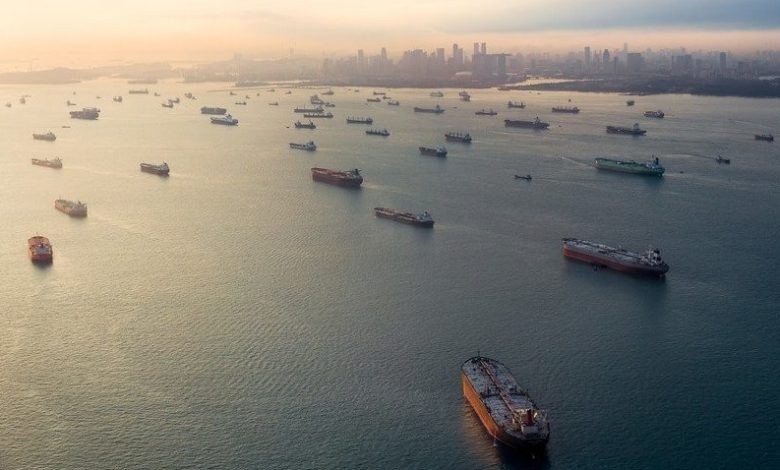Global drop-in biofuels pilot project launches

The Global Centre for Maritime Decarbonisation (GCMD) is leading a consortium of 18 industry partners to launch a drop-in biofuels pilot project with a combined contribution of $18m in cash and in-kind to establish an assurance framework for ensuring the supply chain integrity of current and future green marine fuels.
On the launch of this pilot project Professor Lynn Loo, CEO of GCMD, said: “GCMD is leading this route-based pilot to help align stakeholders in the supply chain for the adoption of biofuels. By facilitating and creating an optimised drop-in green fuels supply chain, this pilot will help to shape national and international standards of biofuels bunkering and lower the barrier for their wider adoption to reduce greenhouse gas (GHG) emissions from a lifecycle perspective. In curating and executing this first-of-its-kind drop-in biofuels pilot, GCMD is positioned to address stakeholder pain points in the complexities of the supply chain of green marine fuels in a meaningful way.”
To meet the International Maritime Organisation’s (IMO) 2030 and 2050 decarbonisation targets, shipowners as well as cargo owners and charterers are exploring the purchase and use of green fuels.
Biofuels can be a near-term measure to reduce GHG emissions as they are available today, and they can be deployed in the same way as marine fuels with minimal changes to the existing distribution infrastructure, shipboard technologies, and operational norms of ships. However, there is no industry-wide assurance framework that addresses concerns on the quantity, quality and GHG emissions abatement of biofuels, nor one that safeguards their premium and value. To address this gap, the GCMD-led pilot aims to establish an assurance framework that ensures supply chain transparency of drop-in biofuels, whose applicability can be extended to future drop-in fuels, such as bio-LNG, bio- methanol and green ammonia, when they become available in meaningful quantities.
Recent IMO decisions to eliminate the need to apply for waivers for using fuel blends with up to 30% biofuels (B30) for propulsion, and to allow the use of B30 in accordance with MARPOL Annex VI, have lowered regulatory hurdles for adopting biofuels. To this end, the assurance framework that will be the outcome of this pilot will increase stakeholder confidence in the full value of the premium paid for such green fuels, and further lower the barrier to wider adoption of biofuels in the maritime industry by addressing concerns on the integrity of the biofuels supply chain.
The vessels in this pilot are all equipped with MAN ES’s two-stroke engines.
GCMD is undertaking a bottom-up approach by convening like-minded partners across the maritime industry to participate in this pilot. Altogether, the shipowners, charterers and operators participating in this pilot project represent approximately 2,300 vessels across the container, tanker and bulker segments. With 12 vessels bunkering at three ports across three continents, the learnings from these route-based pilots will support the green corridors framework that was put forth by the Clydebank Declaration at COP26 in November last year, of which 24 states are signatories including Singapore, the Netherlands and the US where bunkering ports for this pilot project reside.
A first-of-its-kind in extent and complexity, the pilot aims to optimise the entire supply chain of bunker fuels by building on the learnings of past shipboard trials involving biofuels. Designed through the lens of the shipowner, piloting will start with fuel blends involving existing biofuels, such as hydrotreated vegetable oil (HVO) and fatty acid methyl esters (FAME) blended with either very low sulphur fuel oil (VLSFO), high-sulphur fuel oil (HSFO) or marine gas oil (MGO) in blends up to 30% biofuels (B30).
Using BunkerTrace’s digital and synthetic DNA tracing products to track marine fuels from production to vessel propulsion, the pilot will validate the authenticity of sustainable biofuels through molecular verification tests conducted on fuel samples that are collected at numerous identified points along the supply chain. Hence, the pilot will address traceability of drop-in biofuels from production, distribution, transportation, storage, and bunkering to shipboard application, providing end-to-end supply chain transparency.
Testing these fuel blends across the container, tanker and bulker segments travelling on fixed and tramp routes and bunkering at the ports of Singapore, Rotterdam, and Houston under business-as-usual conditions will demonstrate the compatibility and stability of these biofuels in actual operating environments.
In an effort to further accelerate biofuels adoption as a near-term measure to reduce GHG emissions, GCMD will be leveraging this project to be the first in trialling and assessing the use of crude algae oil (CAO) as a marine fuel. CAO is a third-generation biofuel that promises substantially reduced carbon footprint, but unlike HVO and FAME, its utility has not been tested nor its supply chain established.
The overall pilot will commence on August 1, and is expected to take 12 to 18 months to complete.
